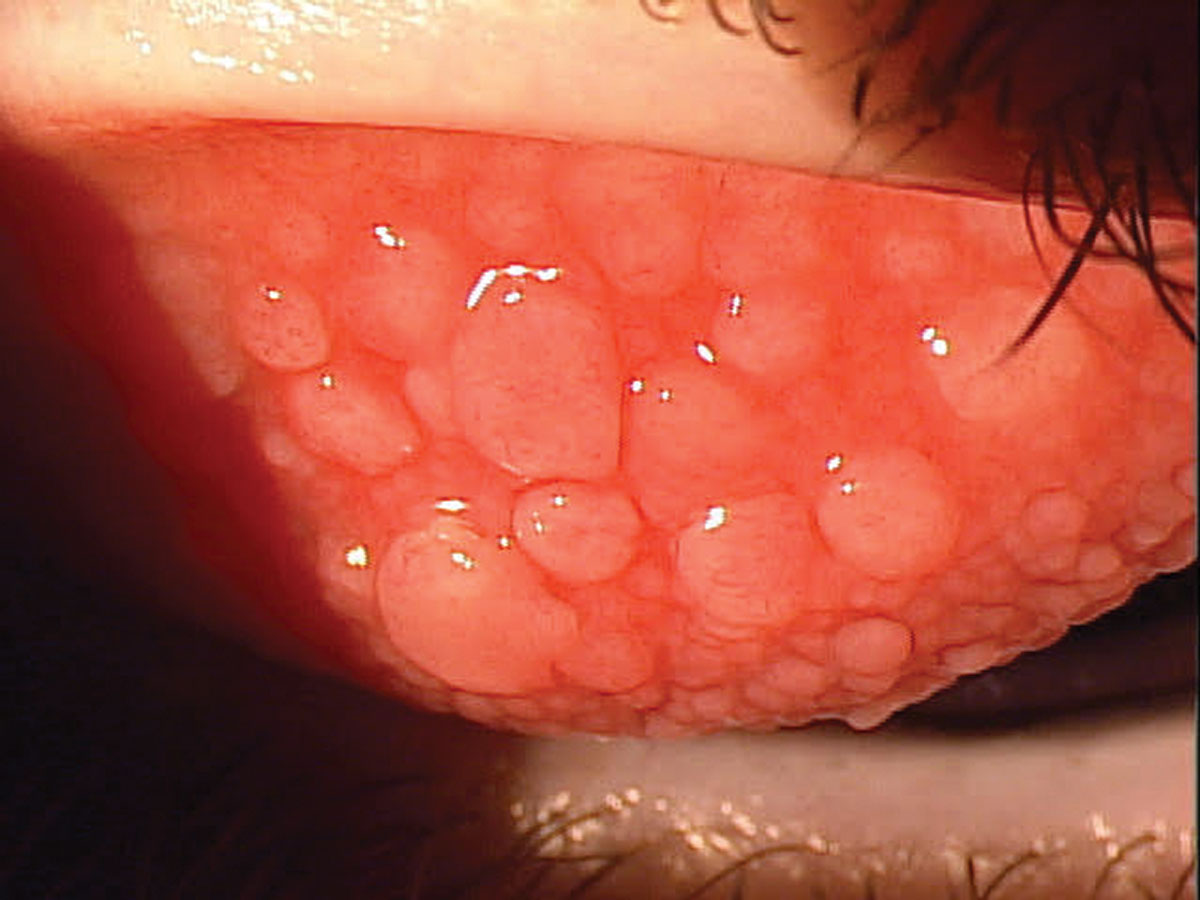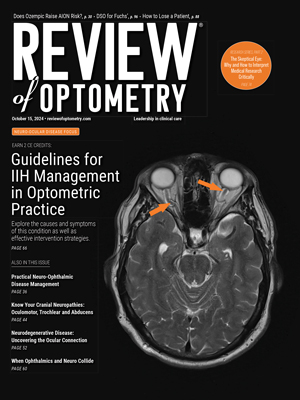 |
Pollutants and environmental factors aggravate VKC and should be considered when developing strategies to prevent and manage the condition. Photo: Paul M. Karpecki, OD. Click image to enlarge. |
Vernal keratoconjunctivitis (VKC) has long been associated with atmospheric conditions, as it is known to be more prevalent in hot, dry climates. Previous studies have suggested that the levels of air pollutants were associated with an increase in hospital visits, outpatient visits and overall VKC exacerbations. A new study aimed to investigate the association between exposure to meteorological and environmental factors and the incidence of VKC exacerbations in patients and found pollutants such as nitrogen dioxide, ozone, particulate matter and temperature exacerbate the condition.
This study was conducted in southern Israel, a hot and dry climate with frequent dust storms. VKC exacerbations were identified as the need for medical intervention.
Nitrogen dioxide, ozone, particulate matter, temperature and solar radiation were found to be significantly associated with VKC exacerbations, with nitrogen dioxide, ozone and particulate matter showing the strongest associations. This suggests that environmental factors should be considered when developing strategies to prevent and manage VKC exacerbations and patients who are at an elevated risk should minimize their time spent in areas with these high levels of pollutants.
“All of these pollutants can directly damage the ocular surface by reducing the pH of the lacrimal fluid or by oxidization,” the authors explained in their paper on the study, published in Investigative Ophthalmology & Visual Science. “Hot weather and strong winds can enhance these effects leading to instability of the ocular surface. Moreover, it has been hypothesized that atmospheric pressure, minimal humidity and wind speed may have direct mechanical effects on the ocular surface and could thus increase the incidence of ocular surface complaints. O3 can cause severe irritation of the respiratory tract mucosa, and the effects are also apparent on the ocular mucosa.”
The study also identified differences in susceptibility to VKC exacerbations influenced by different demographic factors such as sex, age and ethnicity. Different lifestyle and occupational conditions may also contribute to the differences in susceptibility among each group.
“For example, the study revealed that Jews, older patients and younger patients were more likely to be affected by particulate matter 2.5, whereas Bedouins were found to be more susceptible to exacerbations when exposed to particulate matter 10,” the authors explained in the study.
The authors described the Bedouin-Arab population as living in tents or temporary structures, meaning they are exposed to significantly higher levels of environmental factors throughout the year. Additionally, the lifestyle leads to exposures that affect newborns and the elderly, who the authors say typically experience minimal exposure while staying indoors in other locations.
Lastly, a nonlinear association was found between VKC exacerbations and exposure to the pollutants, suggesting that the risk of exacerbations does not necessarily increase with each incremental increase in pollutant levels.
“A reasonable explanation for the decline in exacerbations at higher levels of exposure, for example, with particulate matter 10 and temperature, could be due to behavioral changes and adaptations done by the subjects as preventive measures in cases of strong sandstorms and days of excessive heat,” the authors explained. “By understanding the demographic characteristics of the people who are at a higher risk for exacerbations, targeted preventive measures can be developed.”
Levanon E, Peles I, Gordon M, et al. Air pollution and meteorological conditions significantly associated with vernal keratoconjunctivitis exacerbations. IOVS. July 28, 2023. [Epub ahead of print.] |

